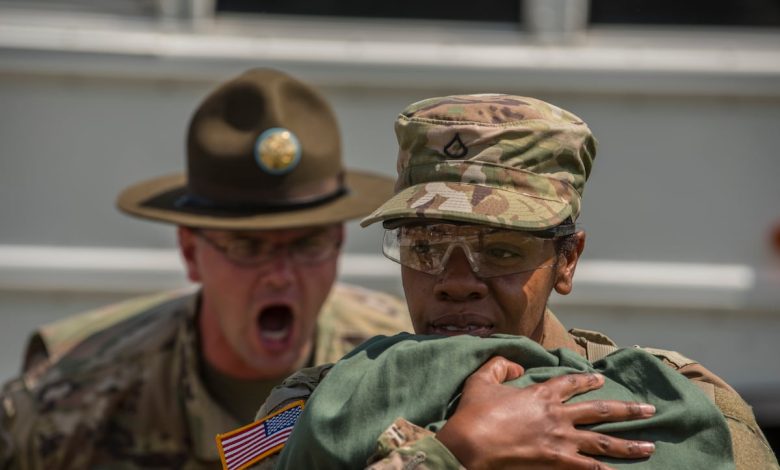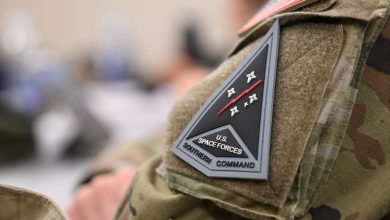Infantry basic training briefly bans ‘bay tossing’ before reversal

Two memos recently shared on social media show that the Army’s 197th Infantry Brigade commander briefly banned “bay tossing” by drill sergeants before rescinding the order a short time later.
Bay tossing — a practice in which drill sergeants trash the trainees’ area by overturning mattresses, emptying foot lockers and garbage cans and then force trainees to clean up — is often used as a memorable way to teach trainees how to do something correctly.
A July 31 memo from Col. Christopher J.C. Hallows, 197th Infantry Brigade commander, “strictly prohibited” the practice of bay tossing.
The 197th Infantry Brigade trains infantry soldiers for both Basic Combat Training and Advanced Individual Training, called One Station Unit Training.
“Drill sergeants will not ‘toss’ the bay to include flipping mattresses, knocking over wall lockers, touching and/or damaging Trainee personal items or equipment,” the memo reads. “Drill sergeants will not use bay ‘tossing’ for any reason to include methods of corrective action.”
The memo states that abuse of trainees violates Army principles, destroys a positive training environment and disrupts good order and discipline.
Four days later, however, in a August 3 memo, Hallows rescinded the ban.
Jennifer Gunn, spokeswoman for the Maneuver Center of Excellence at Fort Benning, Georgia confirmed the authenticity of the memos and provided further explanation to Army Times in an email statement.
“Within the training environment, corrective action is used to enforce conformity with cleanliness standards in the barracks,” Gunn wrote. “Failure to meet standards collectively produces negative outcomes both in training and on the battlefield not only for an individual but for the unit.
“During a recent training cycle, an instance of corrective action violated regulation, and resulted in damage to both government and trainee personal property. This event drove the brigade to consider a change in how these actions are executed. After additional review, the command team determined the behavior (the property damage) was covered in existing policy regarding good order and discipline and treating soldiers with dignity and respect and they rescinded the memo.”
Todd South has written about crime, courts, government and the military for multiple publications since 2004 and was named a 2014 Pulitzer finalist for a co-written project on witness intimidation. Todd is a Marine veteran of the Iraq War.
Read the full article here









